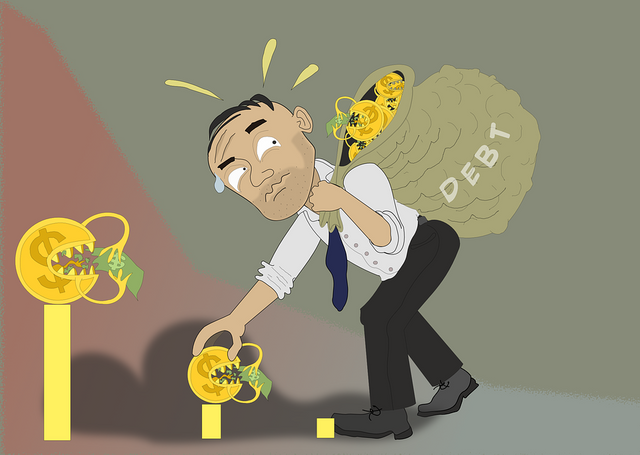It seems to me that our current financial mess has less to do with economic cycles and more to do with greed and unwise business practices. High on my list of examples is the accumulation of personal and business debts. Which leads me to ask one fundamental question: Do you know your debt-equity ratio? If not, you should know it and track it on a regular basis.
In simple layman's terms, debt-equity ratio is the ratio of total money you owe divided by the total value of assets you own. On a personal level, your debt might include a home mortgage, car loan, college loan, balances on credit cards, and everyday bills not yet paid. Your assets might include the value of your home, cars, other property, cash, and investments. On a business level, your debt might include accounts payable, leases, loans, and taxes due. Your assets might include accounts receivable, furniture and equipment, property, and cash. Factored into your assets might be a realistic estimate of the resale market value of the business.
For your own emotional, mental, physical, and financial health and sanity, it is unwise to allow yourself to have a debt-equity ratio worse than 1:1. Why? Because at 1:1, the worst that can happen is that you liquidate all of your assets, pay off all your debts, and you're able to rebuild your life or business with a clean financial slate, a clear conscience, and a good reputation. Anything over 1:1, and you're getting financially over your head.
Now, compare the wisdom and practicality of keeping your debt-equity ratio below 1:1 with recent practices on Wall Street. Do you realize that some of the financial firms that have failed --and others that have received bailout money -- have had recent debt-equity ratios of over 30:1? Can you imagine having $30 in debt for every $1 in assets? Even taking into account the decline in real estate values, they were nowhere near 1:1. Talk about pressure! What an insane way to run a business! The kicker is, we look up to these executives as the financial gurus of our nation. What's wrong with this picture?
I don't know about you, but I'm very ashamed of America. We have given ourselves a black eye, not only domestically but globally. It's time for Americans to get out of denial and back into reality. It's time for our schools, even our business schools, to preach the message that greed is not good. Greed is destructive. Greed is not the engine that drives real, true, genuine economic growth and vitality. It's wisdom, hard work, and integrity.
As I look around, the individuals, families, and companies that exercised self-control over the accumulation of debt are the ones that are currently surviving, perhaps even thriving. So my challenge to you this week is, "What is your debt-equity ratio?" Making sure your worst-case scenario is 1:1 will help you to sleep at night and maintain your lifestyle in the midst of today's economic turbulence.

Congratulations! This post has been upvoted from the communal account, @minnowsupport, by rufu from the Minnow Support Project. It's a witness project run by aggroed, ausbitbank, teamsteem, someguy123, neoxian, followbtcnews, and netuoso. The goal is to help Steemit grow by supporting Minnows. Please find us at the Peace, Abundance, and Liberty Network (PALnet) Discord Channel. It's a completely public and open space to all members of the Steemit community who voluntarily choose to be there.
If you would like to delegate to the Minnow Support Project you can do so by clicking on the following links: 50SP, 100SP, 250SP, 500SP, 1000SP, 5000SP.
Be sure to leave at least 50SP undelegated on your account.
Downvoting a post can decrease pending rewards and make it less visible. Common reasons:
Submit
Very interesting article. I am not worried about that at all. I hardly have debt.
I guess my debt-equity ratio is 1:100 or 1:200. Something like that.
I have found your post because @scaredycatguide featured you on the Community Curation Initiative
Downvoting a post can decrease pending rewards and make it less visible. Common reasons:
Submit